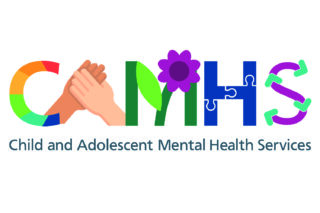Q Exchange
Understand My World, Improve My Care: Young People as Educators
- Proposal
- 2024

Meet the team
Also:
- Chantal Homan (Service lead)
- Cara Lucas (Participation lead)
- Mary Chisham (No Limits)
- Elizabeth Watson (Education Lead)
- Amy Laverton (Schools based practitioner)
What is the challenge your project is going to address and how does it connect to the theme of 'How can we improve across system boundaries?
We deliver Child & Adolescent Mental Health Services across Hampshire & the IOW. Within these services we have a number of young people’s participation and engagement groups, and also work alongside charities that support them to gather insights and feedback. We recently heard from these groups that often our workforce can seem disconnected from the reality of their worlds, for instance, in our language, communication, our unconscious bias displayed through pronouns uses, accents, terminology. They feel that our staff have a poor understanding of the current reality of being young person, such as the impact of knife crime, gangs and bullying, the influence of social media, or online relationships.
These groups have suggested that they could design and deliver training to staff. This would improve relationships, communication and the reputation of the service. It will also improve quality of care and we anticipate better engagement with treatment (therefore better outcomes).
What does your project aim to achieve?
Demand for mental health services from young people is dramatically increasing; there are long waiting lists and many young people are having poor experiences and outcomes, that impact many areas of their lives.
Mental Health Services are hugely dependent on relationship building and trust between therapists, young people and their families. Our participation groups have suggested that we would see significant improvement in engagement across diverse communities if our staff had better understanding of and empathy with their worlds. They are keen to co-design and deliver resources and training for health, care and school staff.
This will have multiple benefits – it will empower young people and give additional skills; it can be inclusive and diverse, reducing inequalities. It will improve trust and relationships and improve the reputation of the service. This will increase engagement with treatment and as such, outcomes. It will also influence future workforce models.
How will the project be delivered?
We have well established young people’s participation groups in service, and partner with a number of relevant community organisations. They have identified this as our priority project. To deliver it we will:
- Work with our participation groups to establish a youth project team. This will be co-led by our participation lead and a young person, and supported by our charity partner No Limits (who can also ensure support mechanisms are in place independent to the NHS or Schools.).
- Explore and test approaches, eg peer workers, reverse mentoring, shadowing, creative methods and online interactive training.
- Co-develop a training package and suite of resources, including case studies published on our CAMHS Academy website accessible by all health and care professionals
- Build a network of young educators from a variety of backgrounds and communities (with a pipeline plan)
- Work alongside the Academy Rapid Evaluation Team to iteratively evaluate, learn and adapt.
How is your project going to share learning?
1. Learning will be shared through the project with blogs and vlogs, and social media posts (including our new CAMHS tiktok account). We have experienced creative communications officers to support with design.
2. We will build a suite of resources for different approaches to training that can be shared with the Q community, and that will be available for all on our CAMHS Academy website.
3. We will write case studies about types of training and how they are being delivered and received
4. We will work with our Academy of Research & Improvement to embed Rapid Evaluation Techniques to ensure live evaluation can feed into iterations of the design. Longer term we can assess impact training is having on the provision of care and outcomes.
How you can contribute
- Has anyone in the community done something like this before? Is there any learning from different approaches across Q that would help inform our approach?
- We’d like to hear from anyone who works with young people to train staff, through whichever method. Do you have peer workers, youth mentors, drama groups or any other models of young people training or facilitating the development of staff.
- We’d also love to hear about approaches to engaging groups or aren’t in school, or who rarely access services.
- Similarly, do you recruit younger staff or have accessible routes into novel roles (ie don’t necessarily involve formal qualifications) in the health and care system.
- Any ideas or wisdom welcome
Plan timeline
| 15 Sep 2024 | Establish Project Team |
|---|---|
| 13 Oct 2024 | Begin scoping exercise and co-design |
| 13 Oct 2024 | Commence evaluation |
| 12 Jan 2025 | Test training methods and build case studies |
| 13 Apr 2025 | Recruit additional trainers |
| 13 Apr 2025 | Refine resources and publish |
| 15 Jun 2025 | Formal launch and celebration event |
| 31 Jul 2025 | Evaluation Published |